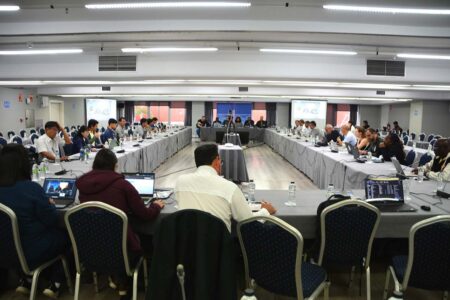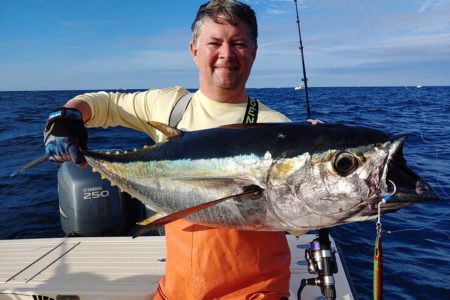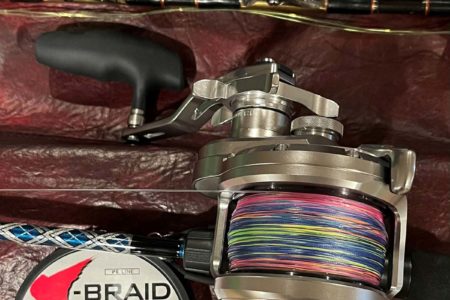“The United States achieved several victories for our commercial and recreational fisheries at the 2019 meeting of the International Commission for the Conservation of Atlantic Tunas (ICCAT) in Mallorca, Spain, which ended November 26, 2019,” said Drew Lawler, United States Commissioner to ICCAT in a release from NOAA Fisheries late last year.
According to Lawler, our U.S. delegation was central to the negotiations to address key conservation measures on several highly migratory species, included in which was a one-year extension of current management measures for North Atlantic shortfin mako shark while ICAAT works toward adoption of a comprehensive rebuilding program.
Based on the 2017 stock assessment showing that shortfin mako sharks are overfished and subject to overfishing, ICCAT nations agreed to new requirements over the past few years, with NOAA Fisheries implementing new size limits aimed at addressing overfishing in 2019. While several ICCAT member nations, with support from environmental organizations, tried to completely shut down all mako harvest for 2020, the U.S. delegation in Spain was able to get a continuance for highly migratory species (HMS) permit holders in 2020.

For shortfin mako, while catch and release is encouraged, the minimum size for landing is 83 inches straight-line fork length and one mako per vessel. As a reminder, as part of the HMS permit application process (hmspermits.noaa.gov), registrants will be prompted to view the video and take the educational quiz within the permit application. Viewing the video, taking the quiz, and obtaining a Shark Endorsement on your Atlantic HMS permit are required to legally recreationally target and retain sharks in federal waters of the Atlantic, Gulf of Mexico, and Caribbean.
Back in March of 2019, recreational fishermen with the appropriate authorizations were under restrictions to release all male shortfin makos measuring less than 71 inches in a straight line from snout to tail, with a female size limit of 83 inches. The latest change from NOAA Fisheries related to the ICCAT meeting this past fall requiring an 83-inch straight-line fork length across the board for 2020 should be seen by shark fishermen as a win, especially when taking into account the opposition’s wish list from Spain.
“When ICCAT managers meet in Palma de Mallorca, Spain, for their annual meeting from 18-25 November, they should adopt a full retention ban on shortfin mako,” said Amanda Nickson, Director of International Fisheries for Pew Charitable Trusts in the days leading up the November meeting, while adding “Anything less than a full retention ban for all mako shark stocks would be a setback.”
According to Nick Cicero of the Folsom Corporation, one of the U.S. representatives to ICCAT, recreational and commercial representatives had taken into account that makos are seriously impacted by the European and Asian longline fleets which continue to target them, explaining how the few fish that Americans take annually is inconsequential by comparison.
“Considering that what was presented to us was a complete shutdown I would tell you that this was definitely a victory for the recreational fishing community,” Cicero said, adding “The state department and their representatives felt very strongly that our catches didn’t amount to anything truly significant, and we wanted to see other concessions from other nations before giving up our very tiny fishery,” Cicero added.
The International Commission for the Conservation of Atlantic Tunas or ICCAT is an international body responsible for developing, managing, and implementing fishery management measures associated with select highly migratory species. NOAA Fisheries under the U.S. Department of Commerce is ultimately responsible for creating the regulations that are appropriate and necessary to further implement recommendations adopted by ICCAT.
A 2019 report by ICCAT scientists, found international vessels – particularly those flagged to EU member States and Morocco – catch excessive amounts of juvenile makos, which are sold for their meat and fins. While U.S. fishermen may have escaped the guillotine for another season at the edge, the continued disregard of sound conservation policies from other ICCAT nations could put the fishery in jeopardy again in 2021 when ICCAT meets again in November in Antalya, Turkey.
Anglers should remember that regardless of their location in the Atlantic, including the Gulf of Mexico and Caribbean Sea, all federally permitted fishermen must use only circle hooks when fishing recreationally for sharks.



